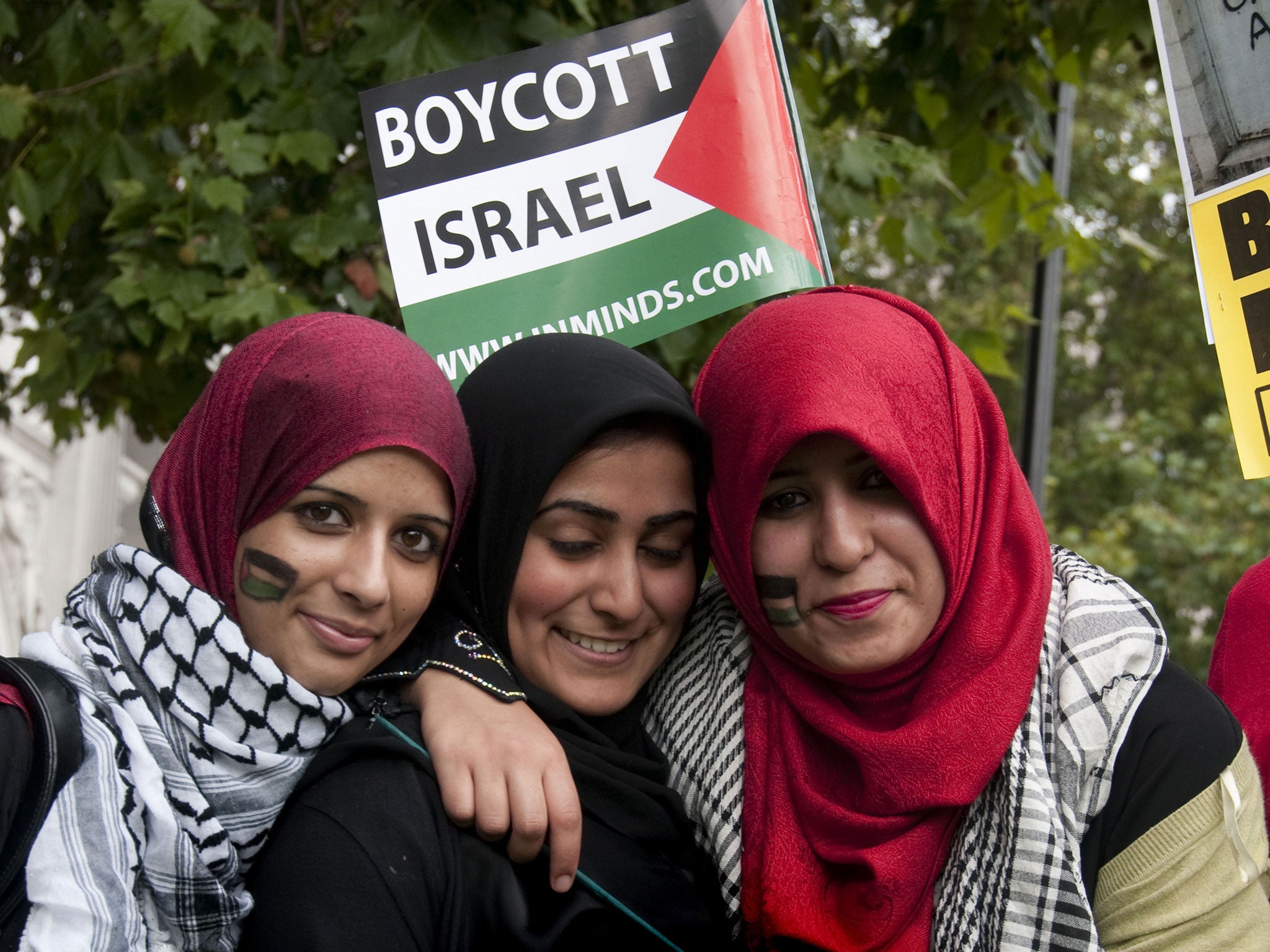The Government is banning discriminatory boycotts against Israel because it's on the side of the victims
Polls of British Jews demonstrate that most believe such anti-Israel boycotts are not merely immoral and hypocritical, but represent a form of intimidation against their community

News that a former Cambridge University lecturer had refused to answer a letter from a 13-year-old Israeli girl asking about horse breeding “until there was justice in Palestine”, out of deference to the BDS Movement, may have been somewhat of a shock to neutral observers when it emerged last December. But to Jewish Britons routinely affected by the toxicity of the relentless campaign against co-religionists in Israel, the decision to exclude a Jewish schoolgirl from the international community is the natural consequence of a campaign which evokes painful collective memories of past persecution.
Polls of British Jews demonstrate that most believe such anti-Israel boycotts are not merely immoral and hypocritical, but represent a form of intimidation against their community, and recognise that violent anti-Semitism has historically been preceded by such ostracism, the nurturing of a climate in which Jews were rendered (to use Daniel Goldhagen’s term) “socially dead”. The boycotters are not only ostracizing and demonizing six million Jews, but sending a message to the millions of non-Israeli Jews in the world who are Zionists that they are morally beyond the pale.
This is the context in which to view UK Government plans to prevent local authorities from participating in boycotts against Israel, a policy reflecting not only the government's concerns about undermining British foreign policy, but a growing realization regarding the connection between BDS and antisemitism in the UK. Indeed, as has been reported by The Independent, senior government sources attributed the new policy to fear that BDS “undermine[s] good community relations”, and “fuel[s] anti-Semitism”.
To understand why Jews, anti-racism campaigners and others feel so strongly about the issue, it's important to provide context.
The modern BDS Movement is inspired by what’s known as the Durban Strategy, a declaration adopted at the 2001 NGO Forum of the UN’s Durban conference. The Durban campaign is itself the political successor to the Arab anti-Jewish boycott launched in 1945, three years before Israeli statehood. The NGO Forum featured numerous expressions of explicit antisemitism, falsely labeled Israel an ‘apartheid state’, absurdly accused the state of ‘genocide’ and adopted a resolution calling for the complete isolation of Israel and “the full cessation” of all international links to the country. Further, despite the false rhetoric of “peace” and “human rights” often used by BDS activists, their leaders have been clear that they in fact oppose the continued existence of a Jewish state within any borders.
What’s known today as BDS – which singles out the Jewish state, alone among the family of nations, for a coordinated campaign of boycotts, sanctions, divestment and social exclusion – was essentially born on that day.
Most Jews around the world indeed view current calls to exclude Israeli Jews from the international community in the context of the dark history of such measures.
They also naturally question the motivation of putatively sophisticated Europeans. They see the unimaginable brutality and oppression in the Arab Middle East – which includes the violation of the rights of women, gays and political dissidents, and even (as in Syria) industrial-scale killing and torture. Yet perversely they believe that the only country whose citizens deserve to be boycotted is the one that, according to a 2013 study by the NGO Freedom House, has the best human rights record in the region. It also just so happens to be the only one with a Jewish majority.
Though many Jews are secular, most thankfully are imbued with a rich and edifying tradition which explains that "What has been will be again, what has been done will be done again; and there is nothing new under the sun". Try as they may, no degree of sophistry employed by boycott proponents can possibly convince us not see this modern day political attack through the lens of Jewish history, nor to avoid reaching the conclusion that – as in every generation – resistance to this current anti-Jewish campaign is a moral imperative.
Especially given the recent upsurge in anti-Semitism in the UK, legislation against such discriminatory boycotts puts the Government on the side of the victims, and gives those who have always viewed the movement through the lens of racism just cause to feel morally vindicated.
Bookmark popover
Removed from bookmarks